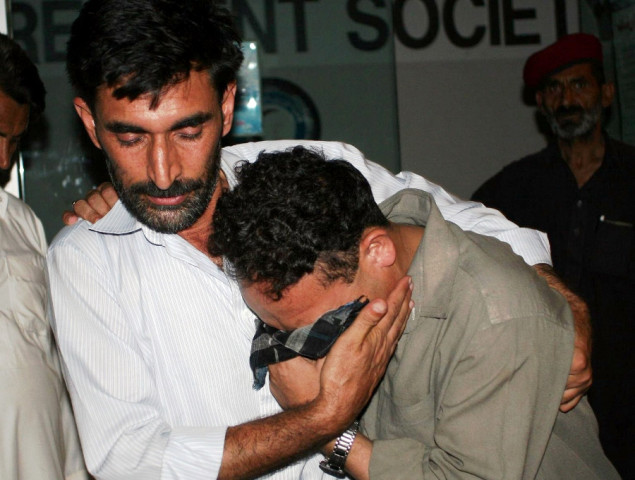Another sectarian massacre
Needless to say, the government needs to bring the perpetrators of this attack on Shias to task.

Targeting Shias on buses has become something of a modus operandi of militant groups. In the last few months alone, Shias have been killed in bus attacks in Turbat, Parachinar and Quetta. Even in Gilgit, 18 Shia bus passengers were killed in February. The targeting of Shias is usually accompanied by some form of official collusion. Curfews imposed in Gilgit tend to affect the Shia community the most and they are often even stopped from offering Friday prayers at mosques. In Balochistan, the Hazara Shias are now so fearful of the systemic elimination of their community by groups like the Lashkar-e-Taiba, that they are choosing to leave the province and even the country that they have called home for generations.
Needless to say, the government needs to bring the perpetrators of this attack to task. Realistically speaking, though, that may be hoping for too much. The government and the security establishment have shown scant concern for vulnerable communities. In a country where politicians get gunned down for expressing any sympathy for minorities, there are precious few political leaders willing to risk standing up for the marginalised. A few perfunctory words of condolence are not enough; they have to be accompanied by a full-throated defence of the Shia community and backed up by tangible action against militant groups who propagate a hateful and twisted ideology.
Published in The Express Tribune, August 17th, 2012.















COMMENTS
Comments are moderated and generally will be posted if they are on-topic and not abusive.
For more information, please see our Comments FAQ